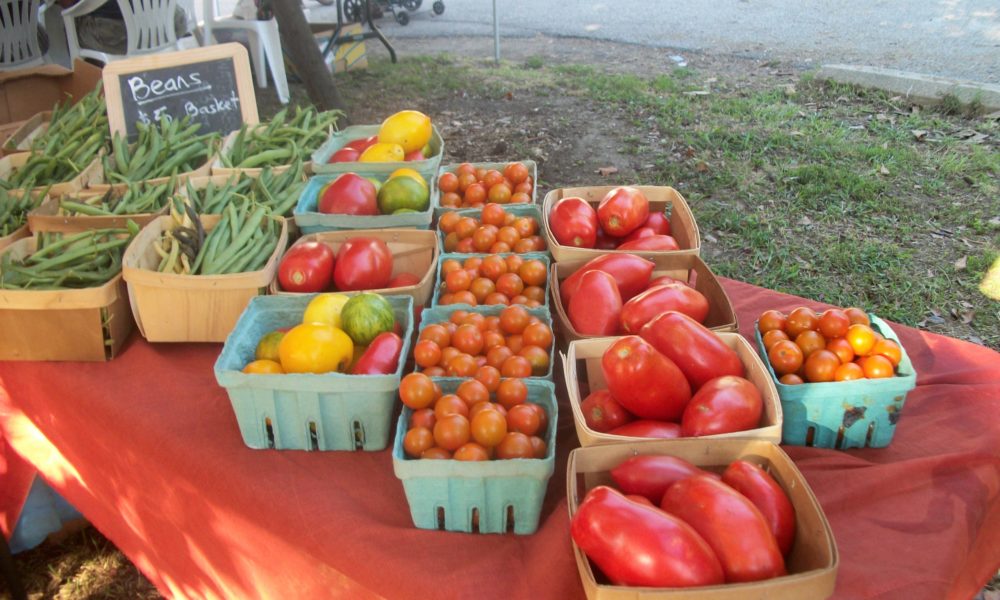The City of St. Louis in alignment with its priorities for improved health and racial equity, has reformed its temporary food permit options. After months of conversations with residents, existing vendors, aspiring vendors, farmers markets managers, and environmental health advocates, the Missouri Coalition for the Environment (MCE) and the City of St. Louis Department of Health (Health Department) came up with an innovative model to encourage the sale of healthy food in communities with limited access to healthy food and where the consumers have lower incomes (known as low income, low access), while also incentivizing residents from those communities to be in the business of selling the healthy food in their own community. To learn more about low income, low access communities in St. Louis, view our Food Access in St. Louis story map.
This new model has increased the number of options from one traditional temporary food permit to now include six permit options, five of which are new as a result of Ordinance 71106. Most importantly for advancing food access and racial equity, is the Low Income, Low Access (LILA) Community temporary food permit. In addition, to support St. Louisans grow healthy food and establish business opportunities for their produce, we also are excited about the reform to temporary food permits for farmers market vendors, which will make selling at farmers markets more affordable, attracting more local food producers to sell in our city. The Health Department also recognized the importance of lowering the cost for specialty foods permits that have limited health concerns (e.g, snow cones, popcorn, lemonade, and other low risk foods) and ensuring greater safety protections for food donated by charitable organizations to our city’s residents who are unhoused or at-risk of being unhoused.
The reform from one temporary food permit (limited to 15 days) to six options with durations of up to one year and varying permit fees that recognize levels of inspection costs, risks to the community, and the need to incentivize certain permits, is in alignment with the goals of the regional Community Health Improvement Plan (CHIP) priorities for improved health and racial equity. These options also are consistent with what the St. Louis Food Policy Coalition, Missouri Coalition for the Environment, and a host of other stakeholders have advised the City of St. Louis Department of Health, as part of the St. Louis Partnership for a Healthy Community (the Partnership). You can learn more about the Partnership and the CHIP at https://www.thinkhealthstl.org/.
The Partnership consists of the City of St. Louis Department of Health, St. Louis County Department of Public Health, hospital systems (BJC, SSM, Mercy, and St. Luke’s) and numerous partners from the local public health system, and it has collectively recognized in the St. Louis area’s CHIP these signature priorities:
-
- Racial Equity: “Eliminate the Disparities in Health and Promote Health and Racial Equity.”
- Social Determinants of Health (conditions in which people live, work and play) that affect health and quality of life outcomes): “Address the Social Determinants of Health as Root Causes of Community Health.”
- “Improve the Local Public Health System to be able to collectively address the needs of the Region.”
The Partnership established an Action Team for Chronic Disease Prevention and Maintenance that includes a Food Access Work Group. This Work Group is governed by the St. Louis Food Policy Coalition, led by the Missouri Coalition for the Environment (MCE). This Food Access Work Group identified a critical need to address providing healthy food that is more accessible to residents on limited budgets, while encouraging residents of those neighborhoods to lead the solutions to their community’s food access needs through food entrepreneurship.
Learn more below about each of these temporary food permits and the process required to obtain each one. We hope that this guide will facilitate greater access to safe, nutritious, locally-grown food that is affordable for both residents and the vendors.
View our decision tree visual guide to the temporary food permit process.
Click here for our handout, providing an overview of the six Temporary Food Permits that exist as a result of this ordinance.
Click here for our handout, outlining the Temporary Food Permit Application Process.

